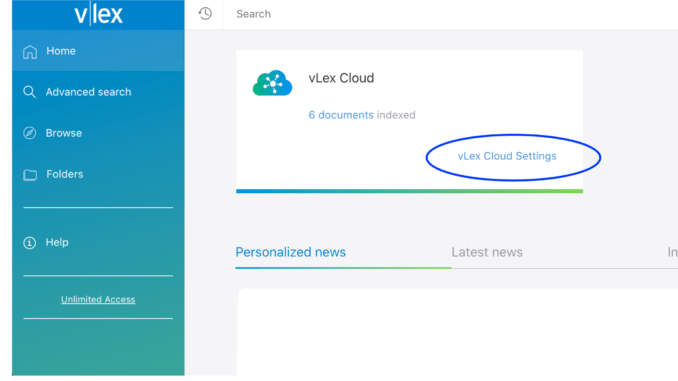
Law firms can now upload their own documents into vLex’s Cloud service allowing lawyers to extend their search and KM capabilities in connection with the legal research platform’s tools and vast litigation database.
Dropbox can be used as a connector to the vLex Cloud, with other services including OneDrive, Google Drive and Box coming soon, the company said.
Once connected to vLex their NLP analysis tools can be be used to ‘enrich a firm’s documents’ – in effect giving law firms adding KM and legal research capabilities. For example, the ‘enrichment’ process, as they call it, identifies legal citations in personal documents, and adds links to authorities on vLex’s own services.
This new capability, the company said, allows lawyers to ‘create a research resource personalised to the needs of the firm and their clients‘.
The challenger legal research company told Artificial Lawyer: ‘Initially this will be an opt-in feature, so users will have to request access, but we hope to roll it out to everyone using the service soon.’
vLex Cloud also offers the ability for legal professionals to share documents with colleagues and teams. They have built privacy safeguards as well. Any document uploaded to vLex Cloud by an individual will only be available to them and will appear in their search results only. Documents can be deleted at any time, and no archived version will remain on vLex services. Organisations will always be in control of their own documents, they stressed.
Robin Chesterman, Global Head of Product for vLex, commented: ‘Law firms of any size have their own library of documents, which contains important information that can be relevant to their research.
‘vLex Cloud makes that information more accessible than ever before, with a single search showing highly relevant documents from internal knowledge repositories alongside our global database of legal information. This will save significant amounts of research time, and can transform the legal research process.’
Overall, this looks to be a neat idea, allowing law firms to leverage an existing legal research source such as vLex that comes with some NLP capabilities of its own, to gain additional insights into their own documents, and also to link them to vLex’s legal research database.
It also appears to follow a growing trend for breaking down silos inside law firms, allowing different sources of legal data to be connected and searched in a joined up way.
If you fancy giving it a go, you can sign up for a spin here.